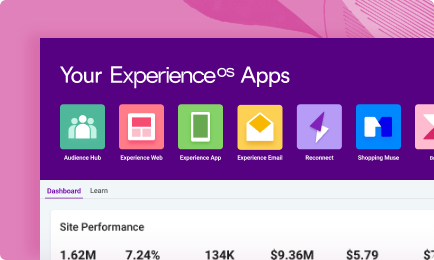Tottenham Personalizes the Fan Experience

from mobile homepage due to mobile web personalization
Introduction
A consistent fixture atop the Premier League table, Tottenham Hotspur is a football club in North London built on the motto “to dare is to do.” After looking at 40 vendors, Tottenham selected Dynamic Yield to bolster its eCommerce business by creating a cohesive, personalized customer journey for each visitor. With Dynamic Yield, Spurs reimagined the mobile website, optimized the conversion funnel, and crafted unique experiences around major events, such as match results and kit launch. Personalization paid off, delivering positive ROI in just one month thanks to notable increases in conversion rates and revenue per session.

Nick Connor, Global eCommerce Manager, Spurs

The Challenge
- Integrate data from across sites, devices, and CRM to power one cohesive experience and give Tottenham full ownership of the data
- Allow non-technical people to easily make instant website changes
- Offer personalization, recommendations and automated optimization in one system
- Provide mobile-dedicated templates that can be targeted at underperforming segments
Execution

After the initial success, Spurs also refined these key navigational blocks to serve relevant content based upon user behaviour in order to give a tailored and relevant experience. In doing so, the Click Through Rate on these mobile blocks has gone up to 50%.



Tottenham has adopted a culture of experimentation and now continually improves its mobile website with a constant cycle of analysis, test planning, test implementation, and reviewing results.

- Largely driven by email and social channels
- Earlier in their buying journey, and
- More likely to be newer and younger than the average visitor.

Spurs also experimented with several variations of a social proof messaging with the template highlighted below, driving a 10% increase in revenue per session.


In doing so, Tottenham discovered numerous additional segments, each of which demonstrated a particular behavior. For instance, a large cluster of segments was characterized as very unlikely to purchase products and instead, were more interested in consuming “gossip.” In serving these segments content that relates to the exclusivity of news (as opposed to simply pushing them to complete a purchase), Tottenham sought to generate greater engagement and value for the business than direct commercial messaging:


